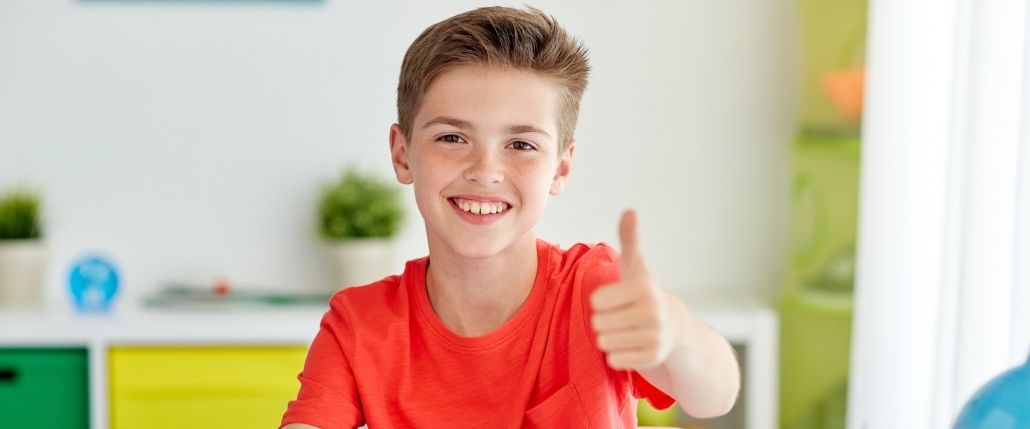
New Social Skills Evidence-Based Program Launch
Village Glen, one of the specialized nonpublic schools of The Help Group, was established in 1997 and designed for students with “Asperger’s Disorder” which is now considered Autism Spectrum Disorder (ASD) Level 1. One of the unique aspects of Village Glen is its focus on social skills, which is taught as a core curricular course. The necessity of social and emotional learning for our students is based on the premise that social communication and “Theory of Mind” challenges are core features of ASD. Theory of Mind can be briefly summarized as the ability to know that other people have different thoughts, feelings, and experiences than our own. In other words, it’s our innate “drive” to think about other people and adjust our behavior for positive outcomes.
RATIONALE
Our philosophy is to help each of our students develop an understanding of the social expectations that exist in our current world, and to feel confident to navigate social situations effectively. We also believe that our students should not have to disown parts of their personality in order to be successful – for example, if a student has a strong interest in bus schedules, our goal is to teach how and when to talk about it, and with whom. Beyond this rationale, research has shown that, particularly for students with ASD, poor social skills is the primary reason adults with ASD are under/unemployed, drop out of college and experience depression later in life.
DEFINING SOCIAL SKILLS
Social skills can be thought of as everything a person needs to maximize their potential, outside of their intellectual capacity. Social skills are not just behaviors—a socially competent person is able to produce skill components (e.g. facial expressions, gestures) needed to effectively communicate, understanding the need to change/ modify behavior based on feedback, form accurate perceptions of others wishes/intentions, and have insight into what behavior may influence others’ decisions. These premises are what informs the social skills curricula at Village Glen, which continues to evolve based on new research and novel programs.
THE VILLAGE GLEN PROGRAM
This academic year (2020-21), Village Glen has been honored to have ASD experts, Dr. Megan Beardmore (School Psychologist) and Dr. Laurie Stephens (Senior Director of Autism Programs) designing a new Social Skills curriculum. Their blended approach includes various evidence-based practice programs (e.g., PEERS, Social Thinking, Zones of Regulation), as well as relying on existing literature to create their own novel lesson plans. Additionally, they tailor and adapt the curriculum for grades K-12 to meet all students’ developmental abilities. Social skills are taught explicitly and are reinforced to encourage generalization of skills across environments. The curricula is based on a well-researched Scope and Sequence of how social skills typically develop – starting with attention and emotional regulation (including behavioral control), to the foundational skills such as understanding eye gaze and reading body language, how to have a conversation, and continues through higher order theory of mind (e.g., empathy, negotiating, cultural awareness), friendship, and executive functions (e.g., problem solving, self-monitoring). Social skills instruction takes place each day for a full class period, and teachers are provided with lesson plans and activities to present the information through multiple evidence-based practices, such as story-based instruction, peer and video modeling, and visual supports.
Progress monitoring tools are in place to determine students’ response to instruction and to evaluate the overall efficacy of the program. Given that this is the first year our program is being piloted, we are able to share some preliminary data on generalization of skills. Currently, our teachers have reported that nearly 75% of the students are generalizing an understanding of the general “rules” of social interaction into their unstructured time. More specifically, approximately 66% of students are spontaneously demonstrating the following skills in unstructured periods (such as clubs, lunch groups): recognizing nonverbal clues (e.g., emotional expression, body language); making accurate inferences about others’ thoughts or feelings; applying the “rules” for starting, maintaining, and ending conversations; and using figurative language (e.g., metaphors/similes, slang/shorthand, humor) correctly. We are excited to see even greater improvements in our students’ generalization of social skills, as well as overall improvement in various skill components, as the year progresses.
Aside from our own observed and measured success, the Western Association of Schools and Colleges (WASC) recently visited the Village Glen schools and shared exciting feedback: “The Social Skills curriculum is robust, adaptable, and consistently implemented across the two sites and includes ongoing training by the clinical staff. [These factors] are critical to its success.”
Drs. Beardmore and Stephens look forward to collecting more data, which will be used to continue to refine and to expand the curriculum. They are also excited about adapting the curriculum for in-person learning!
Contact Us
The Help Group schools serve children and families with social and learning challenges, including learning differences, autism and emotional dysregulation.